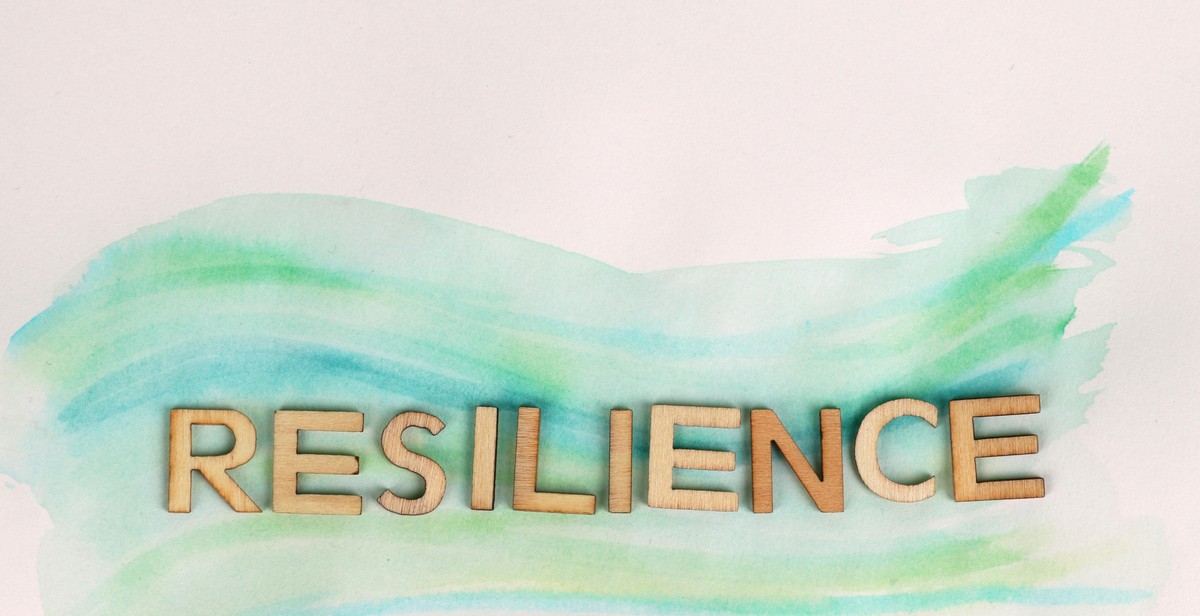The Role of Resilience in Overcoming Life’s Challenges
Life is full of challenges, and no one is immune to them. Whether it’s losing a loved one, experiencing a financial setback, or facing a health crisis, we all encounter difficult situations at some point in our lives. However, what sets successful people apart is their ability to bounce back from adversity. This ability is known as resilience.
Resilience is not a trait that people are born with; it’s a skill that can be developed and strengthened. It’s the ability to adapt to change, recover from setbacks, and keep moving forward despite obstacles. Resilient people are not immune to stress or negative emotions, but they have learned how to manage them effectively.
The Importance of Resilience
Resilience plays a crucial role in our lives. It helps us cope with stress, overcome adversity, and achieve our goals. Resilient people are more likely to succeed in their personal and professional lives, have better mental health, and experience greater overall well-being.
In this article, we will explore the science behind resilience, the traits of resilient people, and practical tips for developing resilience in your own life. By the end of this article, you will have a better understanding of how to cultivate resilience and overcome life’s challenges.

What is Resilience?
Resilience is the ability to adapt and bounce back from difficult experiences. It is the capacity to recover from setbacks, failures, and hardships and to maintain a positive outlook despite challenging circumstances.
Resilience is not a fixed trait, but rather a set of skills that can be developed and strengthened over time. It involves learning from and growing through adversity, and using that experience to build greater strength and resilience for the future.
Characteristics of Resilient People
Resilient people possess certain characteristics that help them navigate life’s challenges and overcome adversity. These include:
- Optimism: Resilient people tend to have a positive outlook and believe in their ability to overcome obstacles.
- Adaptability: They are flexible and adaptable, able to adjust their goals and plans as needed in response to changing circumstances.
- Self-awareness: Resilient people have a strong sense of self-awareness and are able to recognize and manage their emotions effectively.
- Perseverance: They are persistent and determined, willing to put in the effort needed to achieve their goals.
- Strong support networks: Resilient people have a strong support system of family, friends, and other resources that they can rely on during difficult times.
Overall, resilience is an essential skill for navigating life’s challenges and building a fulfilling, meaningful life. By developing resilience, we can learn to overcome adversity and emerge stronger and more resilient than ever before.

The Importance of Resilience
Resilience is the ability to bounce back from difficult and challenging situations. It is a crucial skill that everyone should possess in order to face life’s challenges. Resilience helps individuals to cope with stress, overcome obstacles, and adapt to changes. Here are some benefits of resilience:
- Improved Mental Health: Resilience helps individuals to manage stress and anxiety. It also reduces the risk of depression and other mental health issues.
- Increased Productivity: Resilient people are more productive and efficient in their work. They are able to focus on their goals and overcome obstacles that may hinder their progress.
- Enhanced Relationships: Resilient individuals are better equipped to handle conflicts and challenges in their relationships. They are able to communicate effectively and find solutions to problems.
- Greater Sense of Well-being: Resilience helps individuals to feel more confident and in control of their lives. It also increases their sense of purpose and fulfillment.
Resilience is particularly important in overcoming life’s challenges. It helps individuals to:
- Stay Positive: Resilience enables individuals to maintain a positive outlook even in the face of adversity. This helps them to stay motivated and focused on their goals.
- Find Solutions: Resilient people are problem-solvers. They are able to identify solutions to problems and take action to implement them.
- Learn from Failures: Resilience helps individuals to learn from their mistakes and failures. Instead of giving up, they use these experiences to grow and improve.
- Build Resilience: Overcoming challenges strengthens resilience. Each time an individual successfully navigates a difficult situation, they become more resilient and better equipped to face future challenges.
| Benefits of Resilience | How Resilience Helps in Overcoming Challenges |
|---|---|
| Improved Mental Health | Stay Positive |
| Increased Productivity | Find Solutions |
| Enhanced Relationships | Learn from Failures |
| Greater Sense of Well-being | Build Resilience |

Factors That Affect Resilience
Resilience is the ability to bounce back from adversity, and it is a trait that can be developed and improved over time. While some people seem to be naturally resilient, others may struggle to cope with life’s challenges. Here are some factors that can affect resilience:
Nature vs. Nurture
Resilience is likely influenced by a combination of genetic and environmental factors. Some people may be born with a predisposition to resilience, while others may develop it through experiences and learned behaviors. Studies have shown that certain genetic variations may be associated with increased resilience, but environmental factors such as childhood experiences, social support, and access to resources also play a significant role.
External Factors
External factors such as trauma, loss, and stress can have a significant impact on resilience. People who have experienced significant adversity may struggle to cope with future challenges, while those who have had more supportive and stable environments may be better equipped to handle stress and setbacks. Other external factors that can affect resilience include socioeconomic status, access to healthcare, and community support.
Internal Factors
Internal factors such as mindset, coping strategies, and self-efficacy can also play a role in resilience. People who believe in their ability to overcome challenges and who have a positive outlook on life may be more resilient than those who struggle with self-doubt or negative thinking. Coping strategies such as problem-solving, positive self-talk, and seeking social support can also help build resilience over time.
| Category | Examples |
|---|---|
| Nature vs. Nurture | Genetic variations, childhood experiences, social support, access to resources |
| External Factors | Trauma, loss, stress, socioeconomic status, access to healthcare, community support |
| Internal Factors | Mindset, coping strategies, self-efficacy |
Overall, resilience is a complex trait that is influenced by a variety of factors. While some of these factors may be out of our control, there are many things we can do to build and improve our resilience over time.

How to Build Resilience
Resilience is the ability to adapt and bounce back when facing difficult situations. It is a crucial skill to have in life as it helps us navigate through tough times and emerge stronger. Here are some tips on how to build resilience:
Developing a Positive Mindset
A positive mindset can help you stay optimistic and motivated when facing challenges. Focus on the positive aspects of a situation and try to reframe negative thoughts into positive ones. Practice gratitude by listing things you are thankful for each day. Surround yourself with positive people who uplift and encourage you.
Setting Realistic Goals
Setting goals that are achievable and realistic can help you build confidence and a sense of control over your life. Break down larger goals into smaller, more manageable ones. Celebrate small victories along the way. Remember that setbacks and failures are a natural part of the process and an opportunity for growth.
Practicing Self-Care
Self-care is essential for building resilience. Take care of your physical, emotional, and mental health by getting enough sleep, eating a healthy diet, and exercising regularly. Practice mindfulness and relaxation techniques like meditation or yoga. Take breaks when needed and do things that bring you joy and relaxation.
Building resilience takes time and effort, but it is a worthwhile investment in yourself. By developing a positive mindset, setting realistic goals, and practicing self-care, you can build the resilience needed to overcome life’s challenges.

Real-Life Examples of Resilience
Famous People Who Overcame Challenges
There are many famous people who have overcome challenges and demonstrated remarkable resilience. One such person is J.K. Rowling, the author of the Harry Potter series. Before she became a successful writer, Rowling faced numerous obstacles, including poverty, depression, and rejection from publishers. Despite these setbacks, she never gave up on her dream of becoming a writer and eventually found success with the Harry Potter books.
Another example of resilience is Oprah Winfrey. Born into poverty, Winfrey faced a difficult childhood that included abuse and trauma. However, she persevered and went on to become one of the most successful and influential women in the world.
Personal Experiences of Resilience
I have also experienced resilience in my own life. One of the most challenging times was when I lost my job and struggled to find work for several months. It was a difficult time, but I refused to give up. I continued to apply for jobs, network, and improve my skills, and eventually landed a better job than the one I had before.
Another example of resilience in my life was when I was diagnosed with a chronic illness. It was a devastating diagnosis, but I refused to let it define me. I sought out treatment, made lifestyle changes, and found support from friends and family. Today, I am managing my illness and living a happy, fulfilling life.
| Famous People Who Overcame Challenges | Personal Experiences of Resilience |
|---|---|
| J.K. Rowling | Job loss |
| Oprah Winfrey | Chronic illness |

Conclusion
Resilience is a crucial trait that helps individuals overcome life’s challenges. It is the ability to bounce back from setbacks, adapt to change, and thrive in difficult situations. Resilience can be learned and developed through various practices, such as mindfulness, positive self-talk, and seeking social support.
Having resilience does not mean that one is immune to hardships or that they do not experience negative emotions. Rather, it means that they have the tools and mindset to navigate through tough times and come out stronger on the other side.
Research has shown that individuals with high levels of resilience have better mental and physical health outcomes, higher job satisfaction, and stronger relationships. They are also more likely to achieve their goals and lead fulfilling lives.
Incorporating resilience-building practices into one’s daily life can have a significant impact on their overall well-being. By focusing on the positive, cultivating a growth mindset, and developing coping skills, individuals can become more resilient and better equipped to handle life’s challenges.
Remember, resilience is not a fixed trait but rather a skill that can be honed and strengthened over time. With practice and perseverance, anyone can develop resilience and overcome life’s obstacles.
